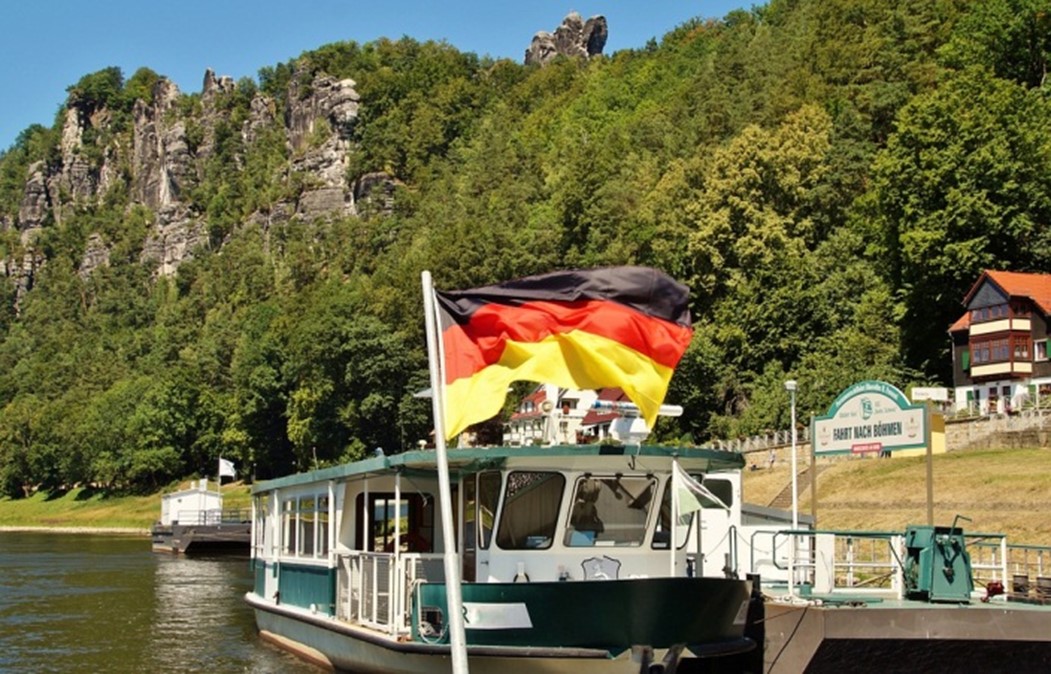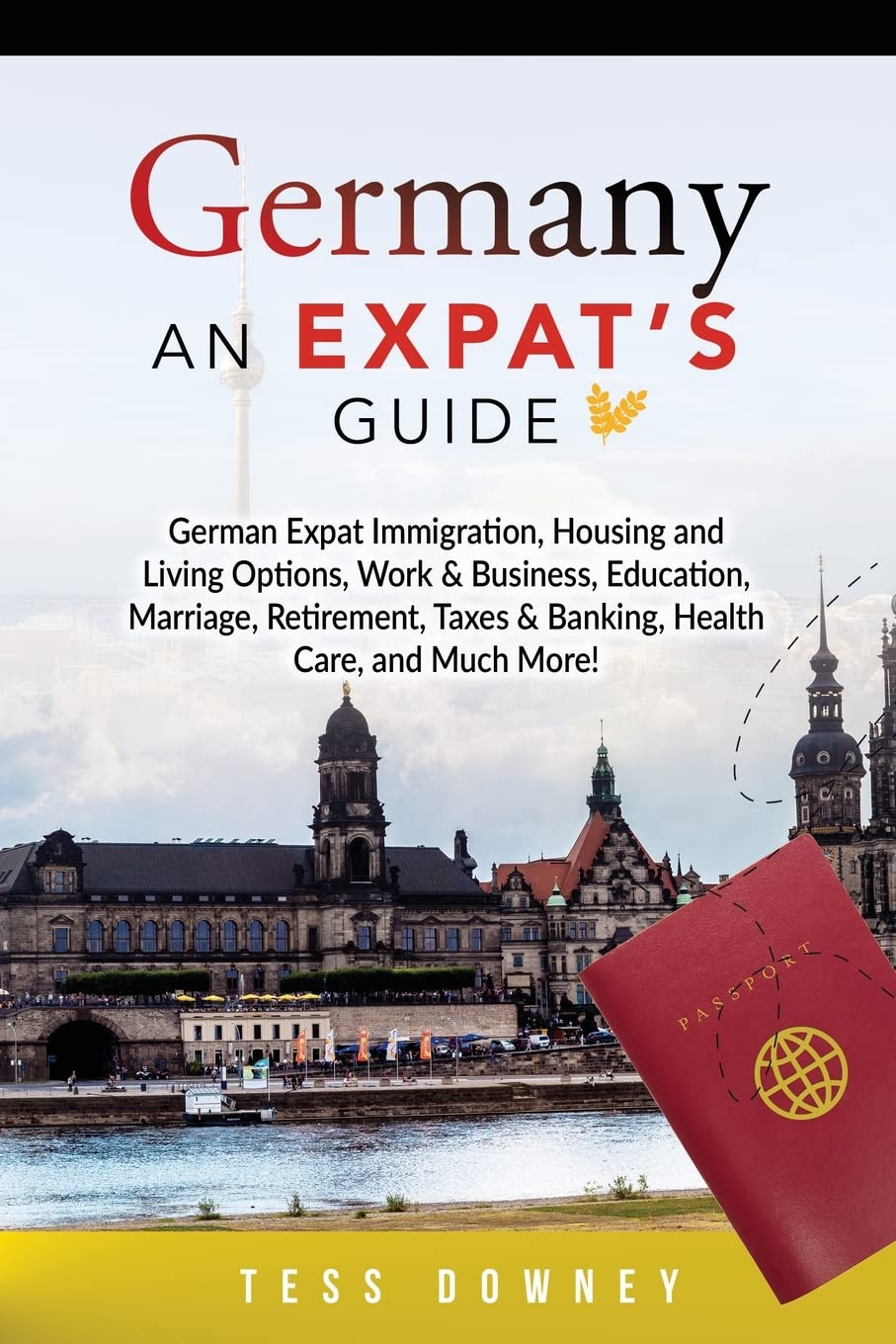CHAPTERS
Navigate to chapter
► Chapter One: An Overview of Germany
► Chapter Two: Immigration Requirements
► Chapter Three: Expat Hubs and Cost of Living in Germany
► Chapter Four: Renting vs. Buying a House
► Chapter Five: Utilities and Communication Services in Germany
► Chapter Six: Work and Business in Germany
► Chapter Seven: Education System in Germany
► Chapter Eight: Taxes & Banking in Germany
► Chapter Nine: Healthcare and Retirement in Germany
► Chapter Ten: Getting Married in Germany
Chapter Two: Immigration Requirements

There are usually different rules for those who are European citizens, and those that are foreign nationals coming from outside Europe. The information in this chapter is primarily aimed for citizens living in North America but it also applies for immigrants coming from Asia, Australia, Middle East, and other parts of the world. If you want to learn more about the exemptions and other specific laws for each country concerning entry/ permanent residency to the Federal Republic of Germany, we recommend that you inquire at the German Embassy in your home country or visit the website of the German Foreign Office at
<https://www.auswaertiges-amt.de/en >.
If you wish to live, study, or work in Germany for a period of time, or for good then it’s a must that you apply for a visa along with other permits. This chapter will guide you in finding out how to get a German Residence Permit and choose the best option for you depending on your current status and nationality.
Applying for immigration is one of the very first steps you need to do before even planning where you’re going to stay or researching about other expat essentials. The processing of papers and filing of documents that are needed for you to make a smooth transition will definitely take quite a period of time, energy, and money which is why this is a very crucial step. Once you’re approved and ready to go, everything will be quite easier. You would want to make sure that everything is approved and documented properly so as not to have the possibility of being deported or have problems down the road once you’ve completely moved in.
Many people confuse a residence permit as already being a travel visa. It doesn’t mean that once you already got a German visa, you are already an immigrant, or you already have a permit to stay in the country for more than the allowed duration period. Your German visa once approved will only allow you to stay in the country for around 3 months (90 days). Canadians and Americans are allowed to go to Germany as a tourist (still within 3 months) without any German visa.
A Resident Permit requires a travel visa/ German visa but once approve, the document allows you to stay in the country as an immigrant (beyond the 90 – day rule). This is what you’re going to learn in the next few sections.
90 Days Visa – Free/ Tourist Visa
Citizens from North America and other continents aforementioned can come to Germany as a tourist before they can apply for a residence permit. As a matter of fact, this is what most immigrants do. Citizens from non – EU/ EEA countries also apply for a residence permit before they arrive in the country. Even if you can get a travel visa and be able to come to the country as a tourist for 90 days, it is better that you already start the application process for your residence permit once you’ve already decided to relocate to the country so that you can already prepare ahead of time since it will involve lots of filing and acquiring of needed documents on your part.
A German Residence Permit (Aufenthaltserlaubnis) grants any foreign nationals to become a resident of Germany beyond the non – visa tourist limit. Back then, residence permits are called as residence visa this was during the time when a residence visa is either pasted on a passport page, or was written down on a separate document. For the entire chapter, we will use the term residence permit to avoid confusing it with a travel visa.
The residence permit today is an eAT document that comes in the form of a plastic card with a digital chip on it. This will allow any foreign national or potential expats like you to legally reside and stay in Germany. There are 2 types of residence permit, they are as follows:
This is only valid for a certain period of time (months/ years), and it should be periodically renewed.
Also known as the Settlement Permit, this is similar to a “Green Card” in the United States which allows a foreign national to permanently reside in the country as if he/ she is a German citizen but it only grants legal residence not German citizenship. If you wish to be a German citizen and be treated as a first – class citizen/ get all the government benefits, you will need to follow a different set of rules which we will talk about later; having a permanent residence permit though is the pre – requisite if you’re planning to become a German citizen.
Do I Need to Be Proficient or Fluent in German?
Any aspiring expat or foreign national is not required to be fluent in the German language but you need to pass a proficiency language test otherwise you may not get a long – term residence permit. We highly recommend that you start learning the national language as soon as possible if you’re serious about relocating to the country. You will also enjoy your expat experience in Germany if you know how to communicate using their language. It’ll be an advantage for you to learn the basic as it will come in handy during your interview with the German consulates. Sometimes, you may be required to attend a language school in Germany and be given a conditional permit for a limited time (a few months up to a year) but it can’t be extended. You will likely be granted a residence permit if you have the basic language skill.
Whether you’re planning to work in the country or not, you will need to get the appropriate residence permit depending on your status and purpose. Back in the day, the residence permit and the working permit are not separated but due to the influx of immigrants to Germany, the government created categories that each has its own limitations and duration period that would be suited for any category whether you’re a student, an accompanying spouse/ family member, a retiree, freelancer/ employee, artist, etc.
If you acquired a residence permit stating that you can’t work, then that means it is illegal for you to engage into any employment activities. So make sure to plan ahead and take the time to know the rules of immigration so that you’ll know what type of residence permit best suits you before you apply for it, and also avoid violating any immigration laws. There are four basic categories of residence permits issued by German authorities:
- Residence permit: This is a limited – time residence title; with or without employment).
Continue Reading…
Want to read the entire thing?

